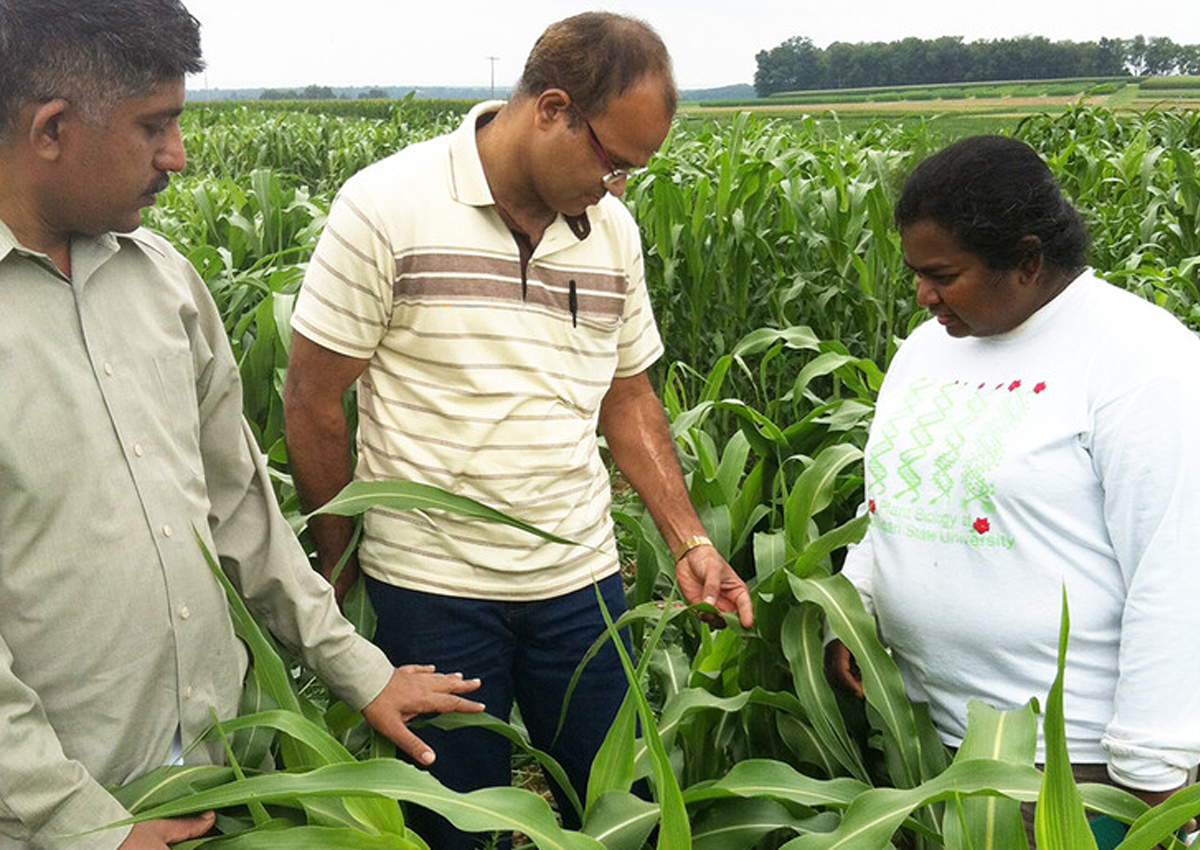
PennState Scientists Identify Sorghum Genes for Resistance to Anthracnose Leaf Blight
July 1, 2021| |
A team of researchers at Pennsylvania State University (Penn State) report that they have discovered sources of resistance to anthracnose leaf blight. The researchers tested more than 150 germplasm lines of the plant for resistance to the fungus and conducted a three-part experiment to evaluate anthracnose problems in sorghum and identify plants that might resist the disease.
The researchers carried out field surveys in 2011, 2012, and 2016 in six Pennsylvania locations to monitor the presence of the Colletotrichum fungus that causes anthracnose in commercial sorghum fields. Next, they grew 158 sorghum lines at Penn State's Russell E. Larson Agricultural Research Center and tested them for vulnerability and resistance to the natural strains of anthracnose fungus. Lastly, they chose 35 sorghum lines that demonstrated resistance to the fungus in field trials and tested their responses after inoculating them with the pathogen. The team then evaluated and scored those plants for the severity of anthracnose leaf blight that developed.
In a paper published in Crop Science, professor of maize genetics Surinder Chopra and colleagues reported that the anthracnose leaf blight symptoms were observed on the older and senescent leaves in Pennsylvania. After conducting field and greenhouse tests on the performance of the 158 experimental lines and commercial hybrids, the researchers noted that they discovered sources of resistance to anthracnose leaf blight.
For more details, read the article in Penn State News.
| |
You might also like:
- Scientists Discover How Sorghum Controls Genome to Survive Drought
- Gene-editing Increases Sorghum's Protein Content
- Scientists Discover Secret of How to Triple Number of Sorghum Grains
Biotech Updates is a weekly newsletter of ISAAA, a not-for-profit organization. It is distributed for free to over 22,000 subscribers worldwide to inform them about the key developments in biosciences, especially in biotechnology. Your support will help us in our mission to feed the world with knowledge. You can help by donating as little as $10.
-
See more articles:
-
News from Around the World
- Experts Explain How Gene Drives Control Invasive Species
- Philippine Media Use Less Fear Appeal as More Farmers Adopt Biotech Maize
- Can Gene Drive Eliminate Vector-borne Diseases?
- PennState Scientists Identify Sorghum Genes for Resistance to Anthracnose Leaf Blight
- EU Report Confirms Glyphosate Doesn't Cause Cancer
- Rutgers Study Sheds Light on Evolution of Photosynthesis
- Study Finds Barley Protein Could Help Boost Its Yield in High Temperatures
-
Plant
- UK's First CRISPR Field Trials Show Potential of Gene Editing
- Customizable Molecular Scissors for Tailoring Plant Genomes
- UC San Diego Scientists Develop First CRISPR-Cas9-based Gene Drive in Plants
- APEC Members Discuss Genome Editing Technology and Policy Strategies
- Simultaneous Editing of Susceptibility Genes in Rice Leads to Disease Resistance
-
Read the latest: - Biotech Updates (January 28, 2026)
- Gene Editing Supplement (January 28, 2026)
- Gene Drive Supplement (February 22, 2023)
-
Subscribe to BU: - Share
- Tweet

